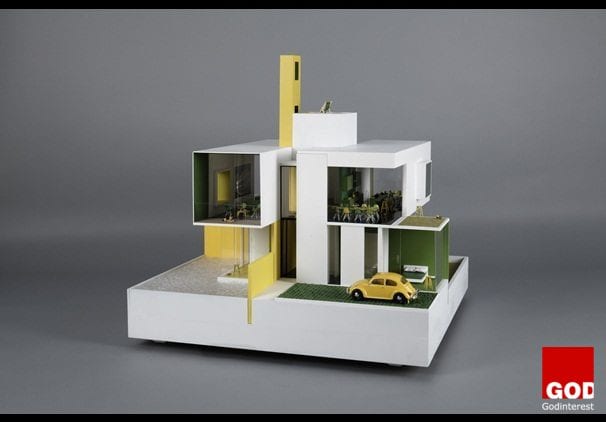The lack of project management training or experience of many Christian leaders can be an enormous stress factor for them. Whilst natural organizational ability is enormously helpful, in itself it is no guarantee of any project being both successful and low stress.
As a Project Manager, you will need to manage every aspect of the project from start to finish, working on a series of pre-determined goals and objectives. Not everyone is cut out to be a Project Manager. It’s not even necessarily a highly desirable job. You get a lot of visibility, but not necessarily a lot of recognition, unless the project is very successful and highly visible. As such project management is not for the faint-hearted.
Although specific responsibilities vary from industry to industry, the role of a Project Manager will generally include the following:
- Defining the project
- Scheduling
- Budgeting
- Risk assessing
- Project control
- Providing direction and support to the team
- Quality checking
- Reporting progress, problems, and solutions
- Assessing results of the project
- Closing down the project
- Managing and working with multiple stakeholders
When it comes to project managing, it is important to have certain skills to be the most effective Project Manager you can be. Some people have these skills and others do not. Here’s our list of indicators that you may not be well suited to be a Project Manager in no particular order:
1. You’re a poor communicator
More than 50% of a Project Managers time is spent on some aspect of communication. The majority of conflicts in a team involve problems in communication, either as a cause or an effect. A lack of understanding can result from ineffective communication and can then lead to further communication issues. Communication skills are ranked first among a job candidate’s ‘must have’ skills and qualities according to a 2010 survey by the National Association of Colleges and Employers (NACE).
Poor communicators will often believe that giving people facts about a situation will be sufficient to influence them into following a particular course of action. However as Richard Nixon said,
“People Are Persuaded by Reason, but Moved by Emotion; The Leader Must Both Persuade Them and Move Them.”
Avoiding communication is a common occurrence when a difficult conversation is anticipated. Project Managers with low confidence will tend to ignore opportunities to pass on difficult messages with the result that the communication vacuum only serves to increase the size of the problem in the team. The old adage that “no news is good news” doesn’t usually apply in such circumstances as the team on the receiving end of the silence will fill the void with their own perceptions, doubts, and fears.
Poor Project Managers also tend to react emotionally and erratically when communicating with the team which can make it difficult for the team on the receiving end to anticipate how the communication will progress. Lack of honesty and not sharing how you really feel can also lead to a lack of trust in the team.
2. You don’t work well with people
Good Project Managers make an effort to spend a lot of time with clients, stakeholders, and team members. If you don’t like working within a team and prefer to stay in one location and focus on your own work, you probably don’t have the collaborative ability to be a good Project Manager. While one person working alone can have an impact, your role as a leader is to guide your team to accomplish bigger goals than they could achieve on their own.
A Great Person Attracts Great People and Knows How to Hold Them Together — Johann Wolfgang Von Goethe
3. You don’t like to manage people
You don’t have much of a project if you’re the only resource. If you want to be a good project manager, you need to be able to manage people well. You will probably never have a 100% responsibility for people, but you will need to show leadership, hold them accountable, manage conflict, etc. Some project managers say they could do a much better job if they did not have to deal with people. If that’s how you feel, project management is probably not for you.
Earn Your Leadership Every Day – Michael Jordan
4. You don’t like to document things or follow processes
Many aspects of project management requires documenting things, including status reporting, communication plans, scope changes, and project plans. A Lack of process increases the risk that tasks related to the project will fall through the cracks, that projects will have to be re-worked, and ultimately that a project won’t be completed on time or on budget. A good project manager needs to be effective at process and information management.
The Art of Leadership Is Saying No, Not Saying Yes. It Is Very Easy to Say Yes — Tony Blair
5. You cannot tell the client “no”
Clients aren’t the same as customers. Sometimes they need to be guided in the right direction. This is your job. Clients who change project requirements all the time or who demand unreasonable working hours need to be managed.
A Leader is One who Knows the Way, Goes the way, and Shows the way — John Maxwell
6. You don’t like to plan and are not organised
The project managers job is to organise everyone in the team. If you cannot plan, you can hardly be an effective leader. When a client gives you a project, if your first inclination is start working, you probably don’t have a project management mindset. The Project Managers overall task is to keep the project on budget and on target. Sticking to deadlines is very important.
The Key to Successful Leadership Today is Influence, Not Authority — Kenneth Blanchard
7. You Micromanage the team
Babysitting the team. It’s very common for poor Project Managers to treat their job like an enforcer, policing the project team for progress and updates.








